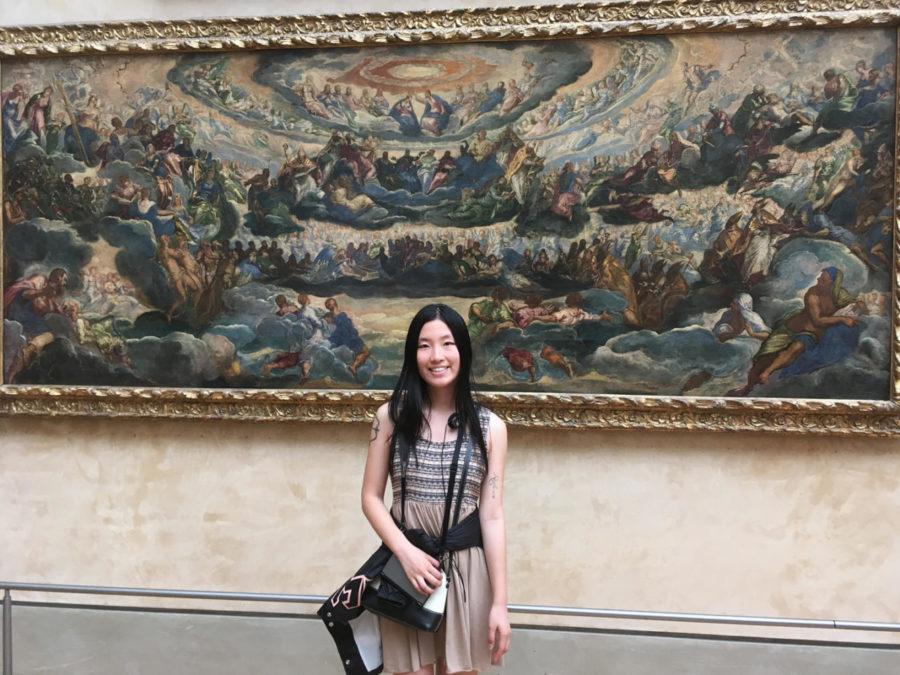Violet Jiao is no stranger to culture shock.
When she first came to the United States, the openness of the people she met and their willingness to casually converse took her by surprise.
“They were so different from my people. In my country, no one will suddenly talk with a stranger on the street,” Jiao said. “I felt really weird at first, but now I’m used to it.”
Currently a sophomore, Jiao comes from China, and plans to pursue majors in the Dietrich School of Arts and Sciences and the College of Business Administration.
While around 64 percent of Pitt students call somewhere within Pennsylvania “home,” four percent of Pitt’s undergraduates come from places as far as China, Vietnam and Saudi Arabia. Pitt educates about 715 international students in its undergraduate programs alone, according to the University’s Office of Institutional Research.
Just like American students, many international students are attracted to Pitt for both its premier academic programs and its urban location.
Shutian Shen came from Guangzhou, China, to study at Pitt, and is now entering her senior year as a psychology major.
“I always wanted to go abroad for school, and I was looking for somewhere where I could do research,” Shen said. “And then Pittsburgh is this big city with lots of sports and art and other things to do, so coming to Pitt was kind of perfect.”
Yiqin Ni, a sophomore studying actuarial math, agreed Pitt’s location was a large factor in her decision to attend the University.
“I really liked the setting of Pitt. I’m from Shanghai and [coming] from a really big city, and it’s kind of a small town, city kind of thing,” Ni said. “And it’s also a big University so you still get to experience a lot of culture and diversity.”
Despite all of Pitt’s assets, international students face challenges at Pitt they would not experience at an institution in their own countries. One obvious challenge is the language barrier, which makes already-challenging classes even more difficult.
Jiao expressed concern that, despite living in America for two years, her lack of confidence in English is still holding her back.
“The language barrier is still bothering me,” Jiao said. “I don’t have courage to choose some classes which I’m interested in since I’m worried that maybe I can’t understand, and I can’t join some clubs for the same reason.”
Shen said issues with language can also have academic consequences, pointing out writing assignments are more difficult for international students than they are for native English speakers.
“I didn’t have a lot of difficulties reading or understanding, but I had some challenges with essays,” Shen said. “Sometimes I’ll fall into this mistake where I keep writing with redundancy, and professors who have taught me have pointed out that I had this problem.”
Aside from academic struggles, some international students feel a cultural divide also makes social interactions more difficult in college. Ali Balubaid, a senior biomedical engineering major from Saudi Arabia, said it takes more effort to make and maintain relationships as an international student.
“The way of life and set of ideals are different in the U.S. than in other areas of the world,” Balubaid said. “Priorities are different, expectations are different, and with all this it’s hard to interact with people in a ‘normal’ way, which makes the friend-making process tougher.”
With the inevitable challenges resulting from going to school in a new country, students say Pitt adequately provides the resources and environment necessary for international students to succeed.
Some of these resources include a special Global Series within the Office of Career Development and Placement Assistance, as well as the Global Ties program in the Office of Cross Cultural and Leadership Development, which strives to build a community for international students at Pitt.
“The school has been very helpful. They give you a lot of opportunities to meet people. So I’m a minority of people, but I’m involved in a lot of organizations with people like me,” Ni said.
Jiao also said Pitt has offered her all of the resources she needed, and expressed how grateful she was to have the opportunity to study abroad.
“I think when you come and see a different culture it gives you a new perspective,” Jiao said. “That’s so important, for everybody.”


